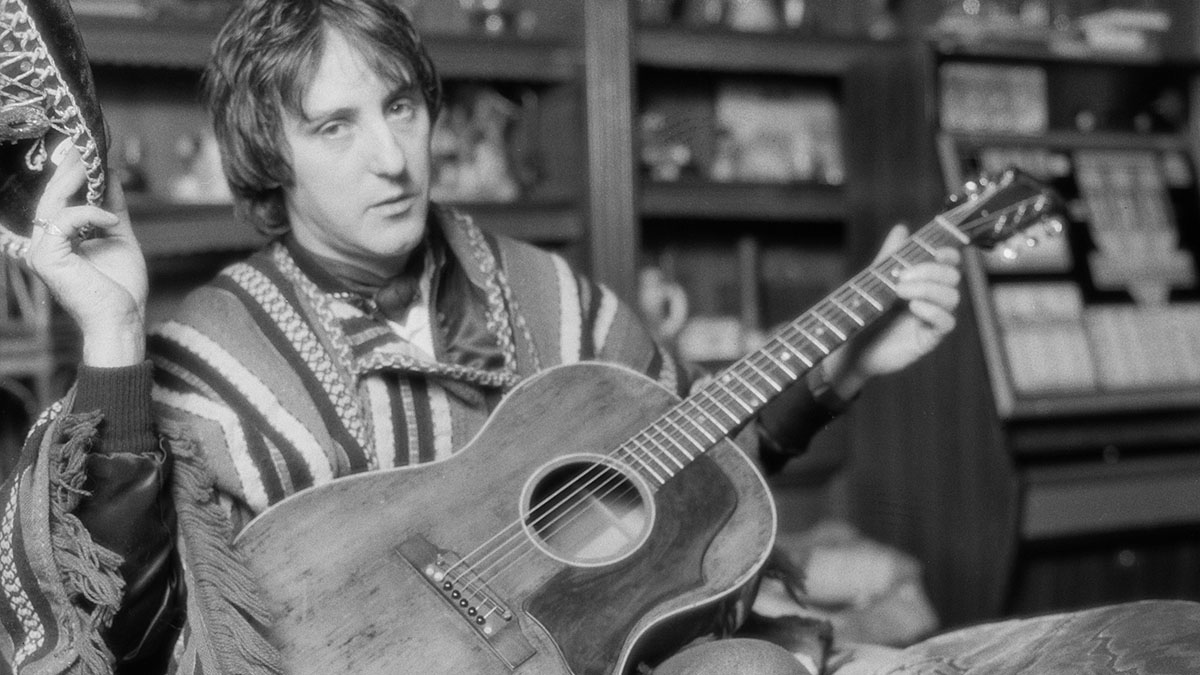“Denny was an outstanding vocalist and guitar player with a fine sense of humor”: Remembering Denny Laine – the guitarist who co-wrote Paul McCartney’s biggest ’70s hit
The former Moody Blues and Wings guitarist died in December 2023, aged 79, and left a legacy of tastefully crafted songs with a keen sense of melody, and an audience of millions

One day in 1977, Denny Laine arrived at Paul McCartney’s farm on Kintyre peninsula in Scotland. McCartney was singing the chorus to a song-in-progress called Mull of Kintyre. Laine grabbed a guitar, and within a few hours, the pair co-wrote what became one of the biggest-selling singles of all-time in the U.K.
For Laine, who died December 5, 2023, at age 79 from lung disease, it was just one stop along the way in a remarkable 60-year career that included fronting the original Moody Blues and riding creative shotgun to McCartney in Wings for a decade of massive success.
“I’m just a normal musician who doesn’t really think about the fame side of it,” Laine told Guitar World in late 2022. “It’s all about music for me, moving forward and creating new things.”
And his life attested to that. Born Brian Frederick Hines in 1944, he learned guitar, bass and piano, and by his teen years was fronting his first band (alongside Roy Wood and Bev Bevan, later of ELO).
His stage surname was borrowed from singer Frankie Laine. Out of Birmingham’s early ’60s “Brumbeat” scene of R&B and blues, Laine formed the Moody Blues and sang their landmark 1964 hit, Go Now. They toured with the Beatles in 1965, and Laine became friendly with McCartney.
After leaving the Moody Blues, Laine played in a quick succession of groups, including Ginger Baker’s Air Force and the much-overlooked Electric String Band. Then in 1971, McCartney called.
Wings’ seven albums are laced with Laine’s contributions – the tasteful guitar work on Band on the Run; his own memorable songs like No Words and Time to Hide; the lush harmonies he added with Linda McCartney. Describing their blend, Laine said, “There was a sound there that can’t be mimicked. It was a special part of Wings, and I’m quite happy about that.”
Get The Pick Newsletter
All the latest guitar news, interviews, lessons, reviews, deals and more, direct to your inbox!
After Wings officially split in 1981, Laine worked on McCartney’s Tug of War (1982) and Pipes of Peace (1983), then went his own way. In recent years, he toured regularly, playing a career-spanning set. “I can’t live without live work,” he said. “There’s no substitute for connecting with an audience.”
Laine leaves behind a wife and five children. In a statement, McCartney said: “Denny was an outstanding vocalist and guitar player with a fine sense of humor and was always ready to help other people. He will be missed by all his fans and remembered with great fondness by his friends.”
Bill DeMain is a correspondent for BBC Glasgow, a regular contributor to MOJO, Classic Rock and Mental Floss, and the author of six books, including the best-selling 'Sgt. Pepper at 50.' He is also an acclaimed musician and songwriter who's written for artists including Marshall Crenshaw, Teddy Thompson and Kim Richey. His songs have appeared in TV shows such as 'Private Practice' and 'Sons of Anarchy.' In 2013, he started Walkin' Nashville, a music history tour that's been the #1-rated activity on Trip Advisor. An avid bird-watcher, he also makes bird cards and prints.
“Every tour was the best I could have done. It was only after that I would listen to more Grateful Dead and realize I hadn’t come close”: John Mayer and Bob Weir reflect on 10 years of Dead & Company – and why the Sphere forced them to reassess everything
“Last time we were here, in ’89, we played with Slash on this stage. I don't remember what we did...” Slash makes surprise appearance at former Hanoi Rocks singer Michael Monroe's show at the Whisky a Go Go


![John Mayer and Bob Weir [left] of Dead & Company photographed against a grey background. Mayer wears a blue overshirt and has his signature Silver Sky on his shoulder. Weir wears grey and a bolo tie.](https://cdn.mos.cms.futurecdn.net/C6niSAybzVCHoYcpJ8ZZgE.jpg)

![A black-and-white action shot of Sergeant Thunderhoof perform live: [from left] Mark Sayer, Dan Flitcroft, Jim Camp and Josh Gallop](https://cdn.mos.cms.futurecdn.net/am3UhJbsxAE239XRRZ8zC8.jpg)





